Related Research Articles
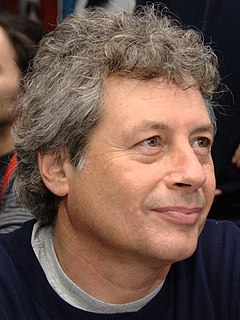
Alessandro Baricco is an Italian writer, director and performer. His novels have been translated into a wide number of languages.
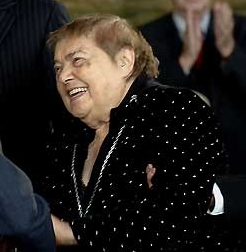
Fernanda Pivano was an Italian writer, journalist, translator and critic.
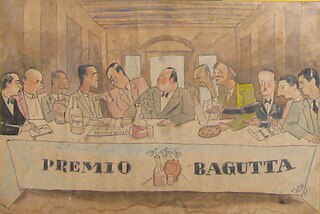
The Bagutta Prize is an Italian literary prize that is awarded annually to Italian writers. The prize originated among patrons of Milan's Bagutta Ristorante. The writer Riccardo Bacchelli discovered the restaurant and soon he regularly gathered numerous friends who would dine there together and discuss books. They began charging fines to the person who arrived last to an appointed meal, or who failed to appear.
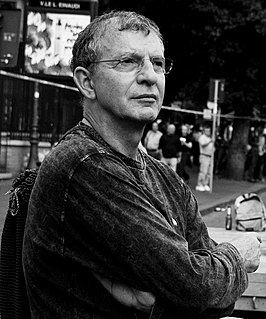
Aldo Busi is a contemporary Italian writer and translator, famous for his linguistic invention and for his polemic force as well as for some prestigious translations from English, German and ancient Italian that include Johann Wolfgang Goethe, Lewis Carroll, Christina Stead, Giovanni Boccaccio, Baldesar Castiglione, Friedrich Schiller, Joe Ackerley, John Ashbery, Heimito von Doderer, Ruzante, Meg Wolitzer, Paul Bailey, Nathaniel Hawthorne.
Gianni Celati is an Italian writer, translator and literary critic.

Sandro Veronesi is an Italian novelist, essayist, and journalist. After earning a degree in architecture at the University of Florence, he opted for a writing career in his mid to late twenties. Veronesi published his first book at the age of 25, a collection of poetry that has remained his only venture into verse writing. He has since published five novels, three books of essays, one theatrical piece, numerous introductions to novels and collections of essays, interviews, screenplays, and television programs.

Roberto Pazzi is an Italian novelist and poet. His works have been translated into twentysix languages.
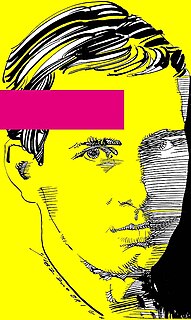
Pier Vittorio Tondelli was an Italian writer who wrote a small but influential body of work. He was born in Correggio, a small town in the Emilia-Romagna region in Italy and died in nearby Reggio Emilia because of AIDS. Tondelli enjoyed modest success as a writer but often encountered trouble with censors for his use of homosexual themes in his works. Tondelli was buried in a small cemetery in the hamlet of Canolo, just outside Correggio.
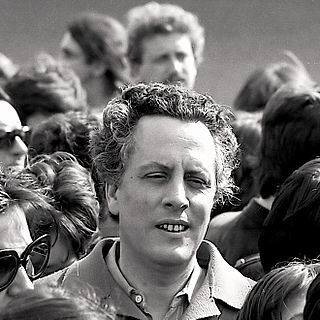
Antonio Porta was an author and poet and one of the founders of the Italian literary movement Gruppo 63.
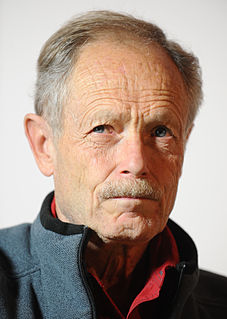
Enrico "Erri" De Luca is an Italian novelist, translator and poet. He has been recognized by critic Giorgio De Rienzo of Corriere della Sera as "the writer of the decade". He is also known for his opposition to the Lyon-Turin high speed train line, and is being sued for having called for its sabotage. On 19 October 2015 Erri De Luca was cleared of inciting criminal damage. He reacted to the not-guilty verdict declaring that "An injustice has been avoided."
The Acqui Award of History is an Italian prize. The prize was founded in 1968 for remembering the victims of the Acqui Military Division who died in Cefalonia fighting against the Nazis. The jury is composed of seven members: six full professors of history and a group of sixty (60) ordinary readers who have just one representative in the jury. The Acqui Award Prize is divided into three sections: history, popular history, and historical novels. A special prize entitled “Witness to the Times,” given to individual personalities known for their cultural contributions and who have distinguished themselves in describing historical events and contemporary society, may also be conferred. Beginning in 2003 special recognition for work in multimedia and iconography--”History through Images”—was instituted.
Fausta Terni Cialente (1898–1994) was an Italian novelist, journalist and political activist. She is a recipient of the Strega Prize.
Giuseppe Dessì was an Italian novelist, short-story writer and playwright from Sardinia. His novel Paese d'ombre won the 1972 Strega Prize and was translated into English as The Forests of Norbio.

Maria Corti was an Italian philologist, literary critic, and novelist. Considered one of the leading literary scholars of post-World War II Italy, she was awarded numerous prizes including the Premio Campiello for the entire body of her work. Her works of fiction were informed by her literary scholarship but also had a distinctly autobiographical vein, particularly her Voci del nord-est (1986) and II canto delle sirene (1989). For most of her career she was based at the University of Pavia where she established the Fondo Manoscritti di Autori Moderni e Contemporanei, an extensive curated archive of material on modern Italian writers.
Anne Milano Appel is an American translator of Italian literature. She obtained a doctorate in Romance languages from Rutgers University in 1970. She has translated, among others, works by Claudio Magris, Paolo Giordano, Giovanni Arpino and Goliarda Sapienza. She was awarded the John Florio Prize in 2012 for her translation of Arpino's Scent of a Woman. She is also working on English translations of Giordano’s Like Family, Syrian Dust by Francesca Borri and Don't Tell Me You're Afraid by Giuseppe Catozzella.
Maria Messina was an Italian writer.

Chiara Gamberale is an Italian writer, television and radio presenter.
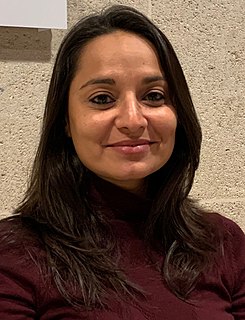
Rosella Postorino is an Italian author. In 2013 she won the International Prize Città di Penne and in 2018 she won the Rapallo Carige Prize and the Premio Campiello.
Giorgio Fontana is an Italian writer currently living and working in Milan.
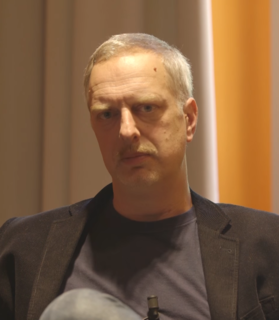
Antonio Scurati is an Italian writer and academic. In 2019, he was awarded the prestigious Strega Prize for his novel M. Il figlio del secolo (2018).
References
- Generazione in movimento, edited by Enrico Minardi and Monica Francioso, Ravenna, Longo 2010
- Enrico Minardi and Monica Francioso, Enrico Palandri, Florence, Cadmo 2011
- Alberto della Rovere, Dialogo con Enrico Palandri, Zermeghedo, Edizioni Saecula 2015